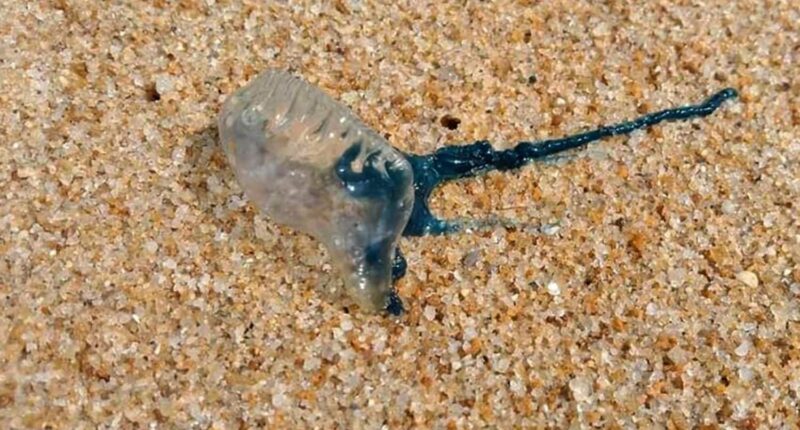Surge in Jellyfish Stings Raises Safety Concerns in Phuket
Patong Beach, one of Phuket’s most famous tourist destinations, has recently become the scene of a box jellyfish sting scare, with multiple tourists suffering painful and sometimes severe injuries. Lifeguards have reported an increase in jellyfish stings, prompting urgent medical care for several visitors.
The stings, caused by the highly venomous box jellyfish, left beachgoers with burning sensations, rashes, and serious allergic reactions. According to lifeguards, the incidents occurred both near the shore and in deeper waters. Many swimmers didn’t immediately realize they had been stung, as box jellyfish are nearly transparent and difficult to detect in the water.
“Most people just feel a burn at first, but for others, it quickly turns serious,” said a Patong Municipality lifeguard. “We treat stings with vinegar to stop the venom from spreading, but some victims still required hospital treatment.”
Understanding the Danger of Box Jellyfish
Box jellyfish are among the most dangerous marine creatures in the world. Their cube-shaped, translucent bodies and long, trailing tentacles contain thousands of stinging cells that release potent venom upon contact.
While most jellyfish stings result in temporary pain and irritation, box jellyfish venom can be fatal within minutes, particularly for those with pre-existing allergies or severe reactions. Another species of concern, the Irukandji jellyfish, can cause delayed yet life-threatening symptoms—starting with mild discomfort before escalating to severe pain, nausea, and cardiac complications.
Authorities Boost Safety Measures at Patong Beach
With Phuket’s High Season fast approaching, beach authorities are ramping up safety protocols. Lifeguard patrols have been increased, and swimmers are being advised to pay close attention to warning flags and safety announcements.
Officials urge visitors to:
-
Avoid swimming in restricted areas marked by red flags.
-
Rinse affected areas with vinegar if stung.
-
Seek immediate medical assistance for severe reactions.
Additional Warnings Issued for Kata Noi Beach
In a related incident, the Department of Marine and Coastal Resources (DMCR) issued a public warning after several Portuguese man o’ war—a dangerous siphonophore often mistaken for a jellyfish—were discovered washed up on Kata Noi Beach.
These marine creatures carry long, venomous tentacles capable of delivering painful stings that can cause serious injuries. Red flags were raised on July 15, following reports from lifeguards and marine inspectors confirming the presence of these species.







